Ms. Hanh in Thanh Tri, Hanoi feels proud when nearly 200 people like and share her post showing off her child's certificates and achievements on Facebook.
At the end of the school year, Ms. Hoang Thi Hanh was proud when her two elementary school daughters were awarded by the school for completing the program excellently and winning silver in an English Olympic competition. Wanting to share with relatives and friends, she took a photo of the certificate and email announcing the results and posted it on Facebook.
Ms. Hanh said she still does this often, considering it a form of diary writing. "Every year on this day, Facebook reminds me, and I see how my child has grown up," she said.
Ms. Nguyen Thi Ngan in Cau Giay also has this habit. After her child got a high score in an English contest, she took a screenshot of the results announcement including full name, registration number and test score from the organizing committee. When posting it on Facebook, she clearly wrote the name of the school and class to prove that her child only attended a public school but still achieved high results.
"I took a photo of the email because many people who saw the high scores thought that their children were studying at private or international schools. But if they try hard, all children can learn English well, even at village schools," said Ms. Ngan. In addition, according to her, sharing information also lets relatives living far away know the information, shows the children's efforts and the parents' support.
Many parents say they post their children’s report cards and certificates online simply to share their joy with friends. However, experts say this inadvertently exposes children’s information to others, which can lead to fraud.
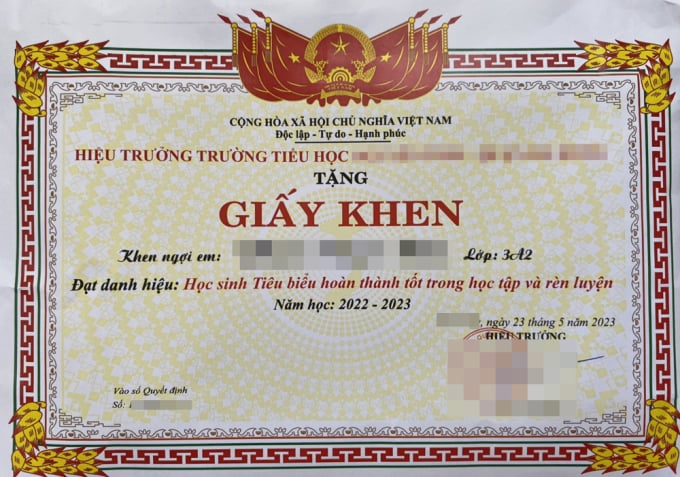
Parents show off their children's certificates on their personal pages after the closing ceremony. Illustration: Binh Minh
Responding to the National Assembly in November 2022, Minister of Information and Communications Nguyen Manh Hung said that according to the report of the Ministry of Public Security, about 1,300 GB were leaked, equivalent to billions of pieces of information.
In addition to being attacked by hackers or having someone in the organization or unit selling data, another reason why personal information is leaked is that people are not aware of protecting their personal information.
Mr. Ngo Tuan Anh, Vice President of the Vietnam Information Security Association, likened parents showing off their children's certificates and report cards online to enlarging a photo with all of their child's personal information and hanging it on the front door. According to him, the principle of social networks is connection, so when the default setting is public, anyone can access it. They can go to the parents' page to get a lot of specific information such as where the child studies, the teacher's name, what time the child starts and finishes school, or what the child likes to eat and play. When they have information, bad guys can take advantage of it to commit fraud.
Mr. Dang Hoa Nam, Director of the Department of Children, Ministry of Labor, War Invalids and Social Affairs, said he was startled to see parents competing to post their children's report cards online.
"This is extremely dangerous," he said, adding that the situation of fraud and child abuse online is becoming more complicated.
According to experts, in recent times, a number of scams have originated from personal information being leaked through many channels and falling into the hands of bad guys. Many parents have received information impersonating the school or from others reporting that their children are in the hospital and are in emergency care or that their children who ordered online are in debt and are being asked to transfer money urgently.
According to Mr. Nam, showing off achievements online without the opinion and consent of children, aged 7 and above, is considered a violation of the law. According to Decree 56 of the government, information about children's names, ages; schools, classes, academic results and friendships... are confidential personal information of children.
"The constitution and the law on children stipulate that the private information of citizens and children is inviolable. Violators will even be subject to administrative sanctions," said Mr. Nam.
He also wondered whether parents had asked their children for permission to share their achievements online. In fact, many students called the department's hotline 111, saying they did not agree with their parents posting their report cards and academic results on their personal pages. This unintentionally puts pressure on children to achieve, even if they are excellent students. Those who do not have good achievements will be compared to their classmates.
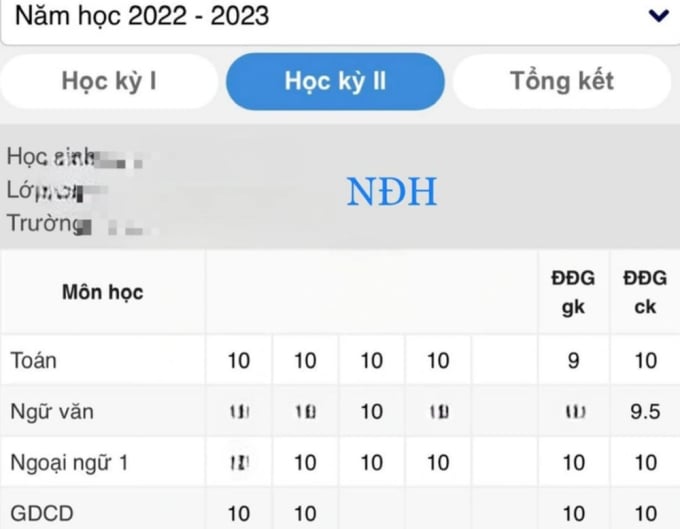
Student transcripts shared in a parent group. Photo: Facebook Companion
Instead of posting their children's report cards and certificates online, Mr. Nam thinks parents can share ways to help their children improve their studies and experiences in supporting their children so that the next semester will have better results than the previous semester.
Mr. Tuan Anh advises that when sharing anything online, parents should ask themselves whether they are willing to let others access that information.
"We need to consider carefully before clicking the share button," Mr. Tuan Anh advised.
When she learned about the recent scams, Ms. Hanh felt worried because she had revealed a lot of information about her family. "I have hidden or locked posts with pictures of my relatives on the page," Ms. Hanh said.
Ms. Ngan said her daughter reacted when she saw her mother's posts and photos showing off her achievements online.
"My child asked me to remove the post. My relatives also commented on this, so now I limit my Facebook updates," said Ms. Ngan.
Dawn
Source link


![[Photo] Prime Minister Pham Minh Chinh receives CEO of Standard Chartered Group](https://vstatic.vietnam.vn/vietnam/resource/IMAGE/2025/4/2/125507ba412d4ebfb091fa7ddb936b3b)
![[Photo] Comrade Khamtay Siphandone - a leader who contributed to fostering Vietnam-Laos relations](https://vstatic.vietnam.vn/vietnam/resource/IMAGE/2025/4/3/3d83ed2d26e2426fabd41862661dfff2)
![[Photo] Special relics at the Vietnam Military History Museum associated with the heroic April 30th](https://vstatic.vietnam.vn/vietnam/resource/IMAGE/2025/4/3/a49d65b17b804e398de42bc2caba8368)

![[Photo] Prime Minister Pham Minh Chinh receives Deputy Prime Minister of the Republic of Belarus Anatoly Sivak](https://vstatic.vietnam.vn/vietnam/resource/IMAGE/2025/4/2/79cdb685820a45868602e2fa576977a0)

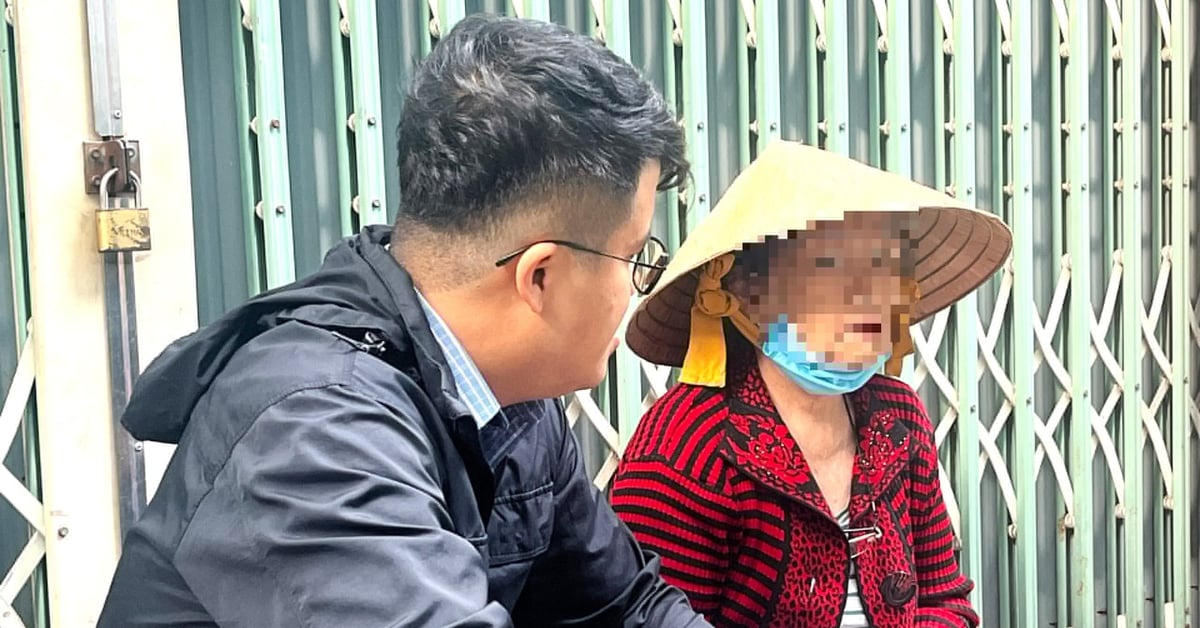







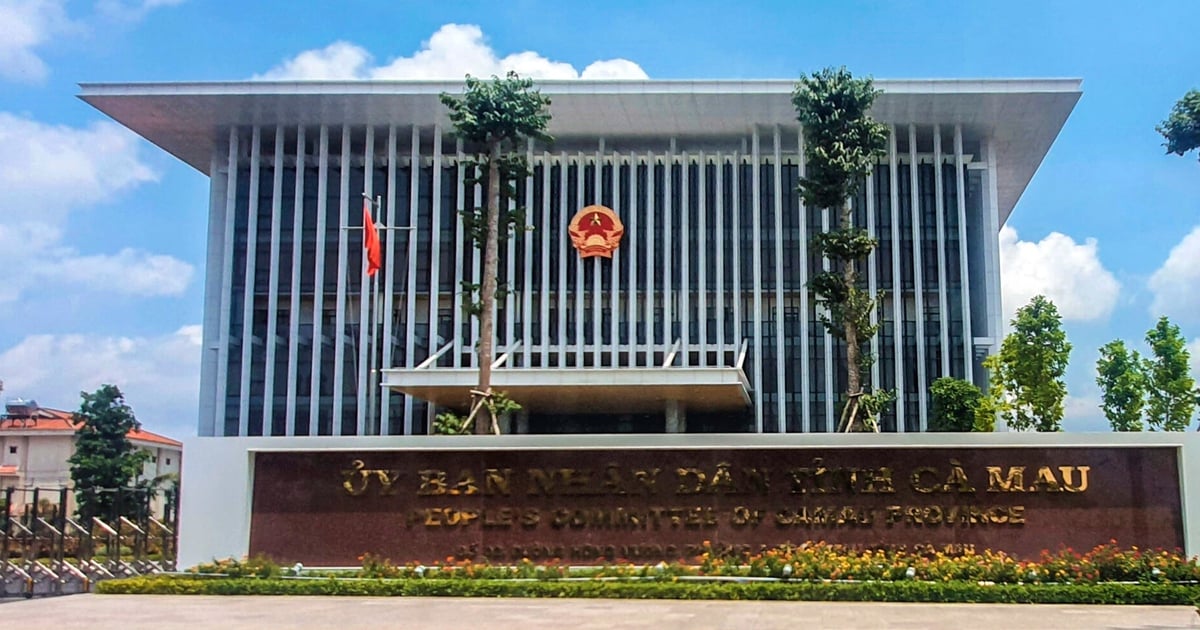

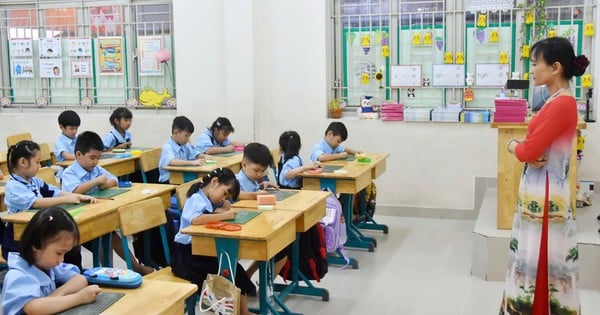












































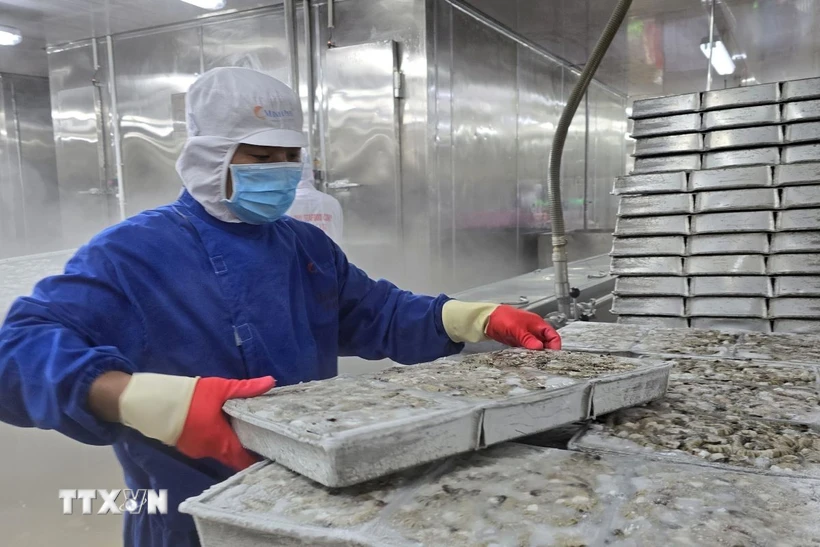

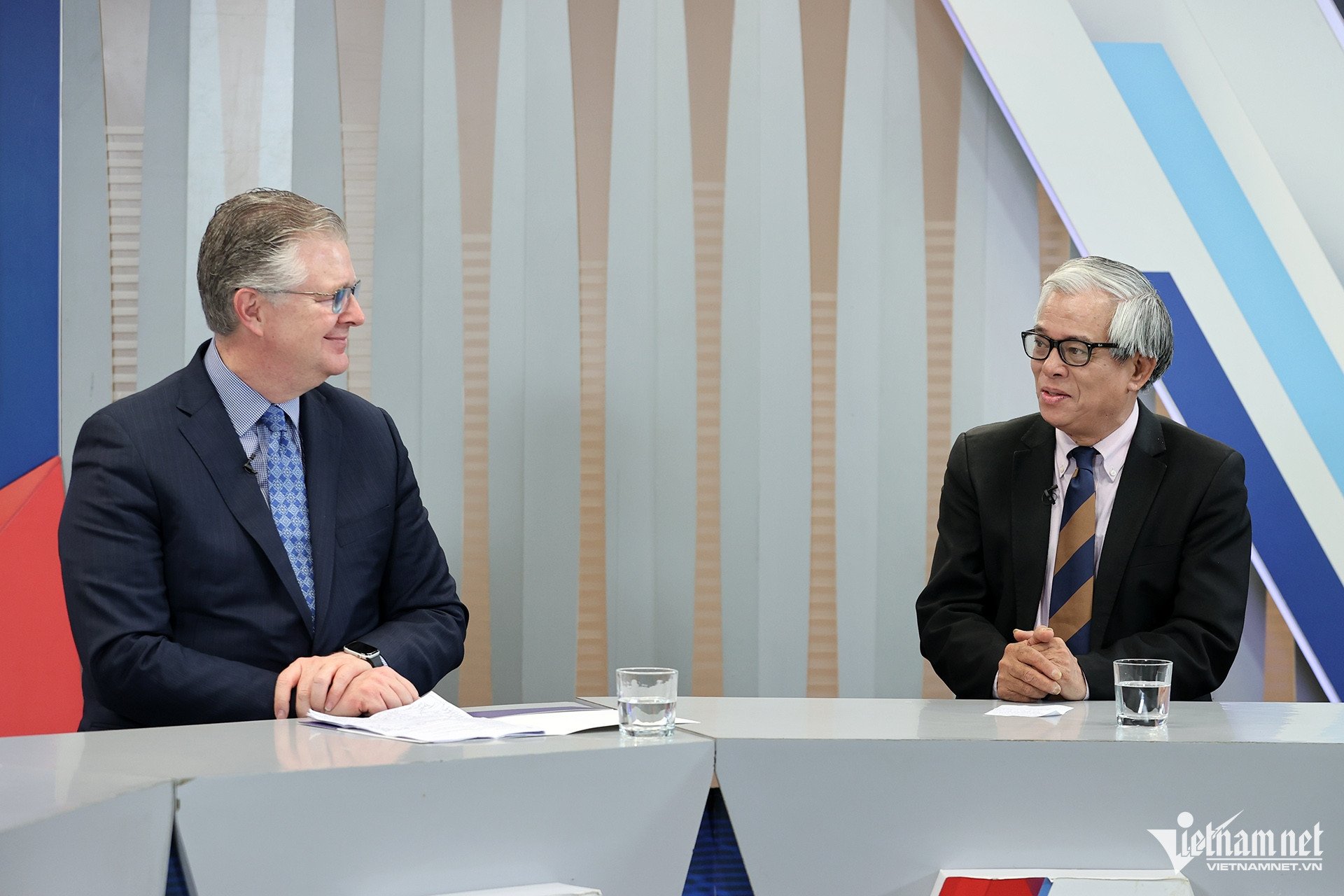
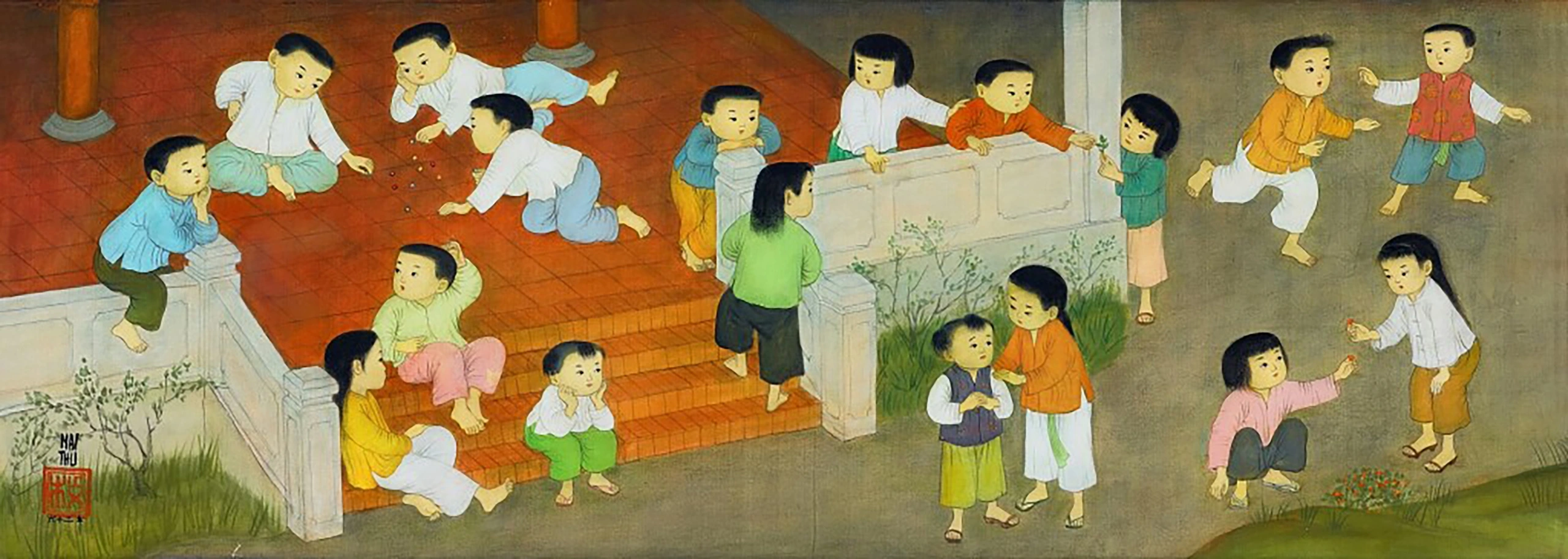















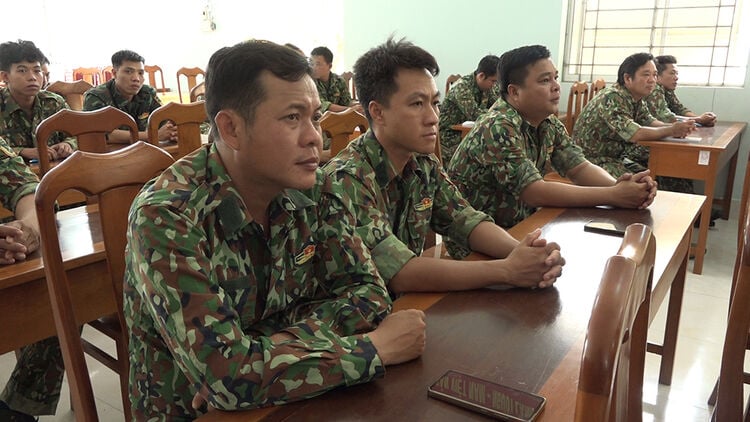
















Comment (0)